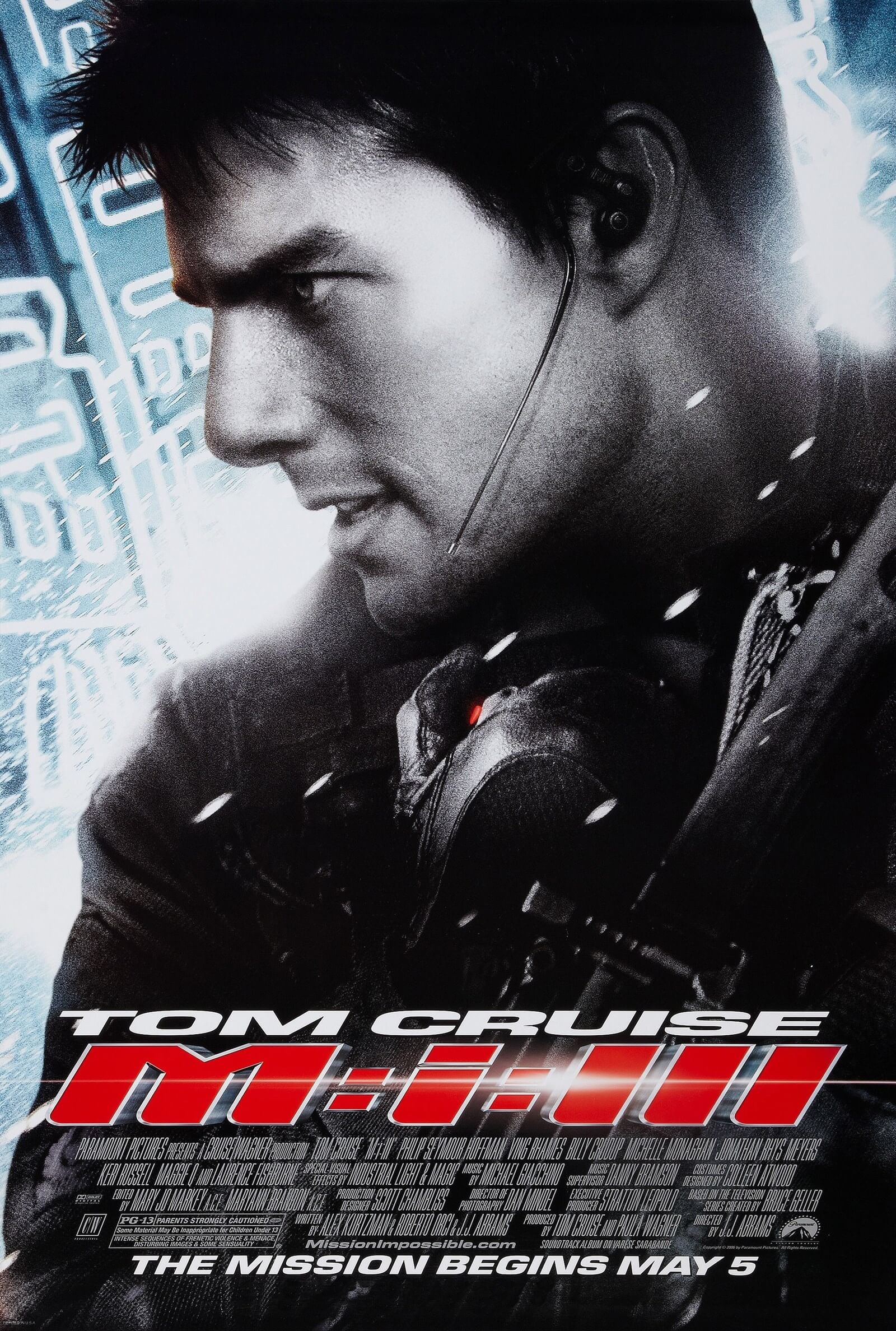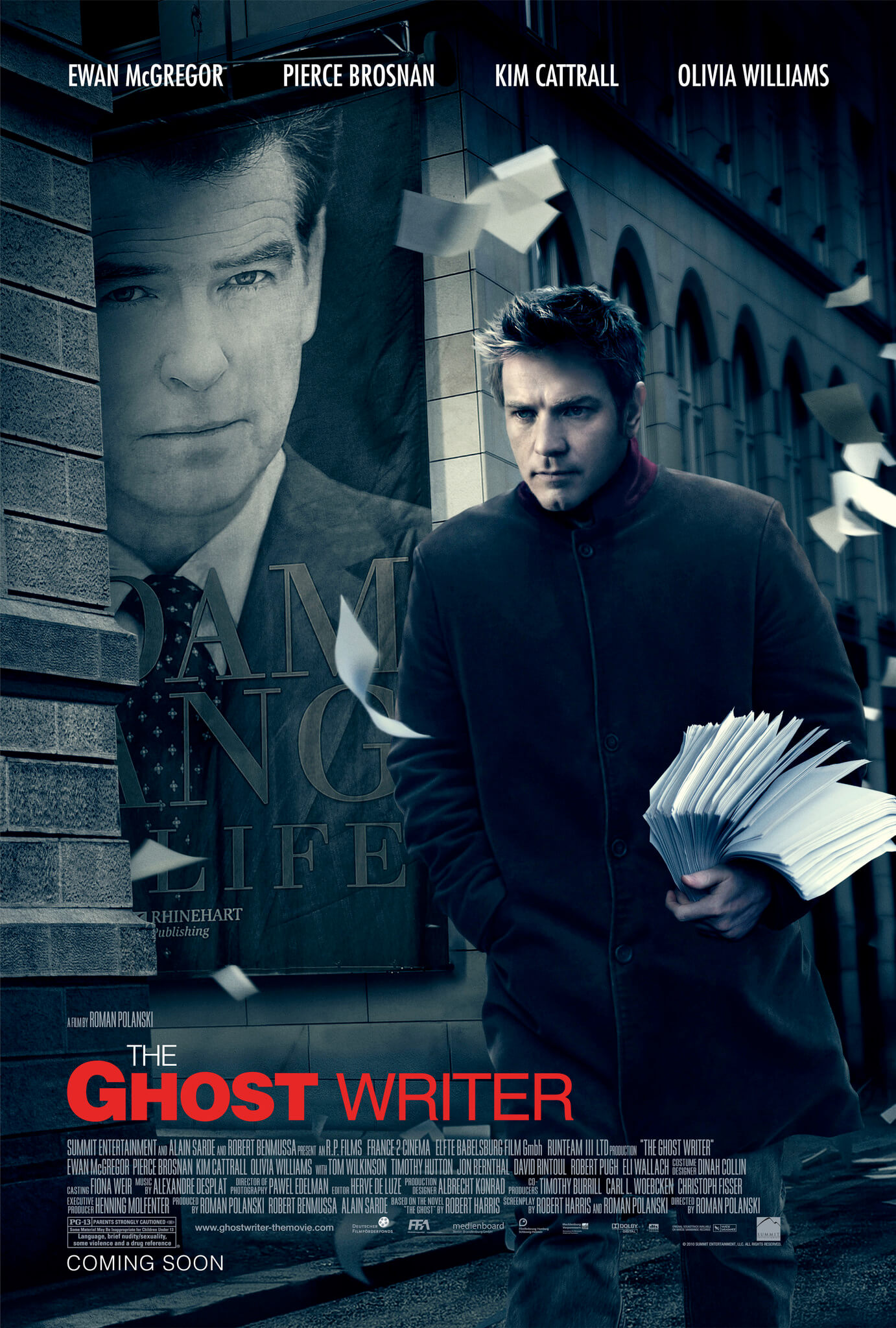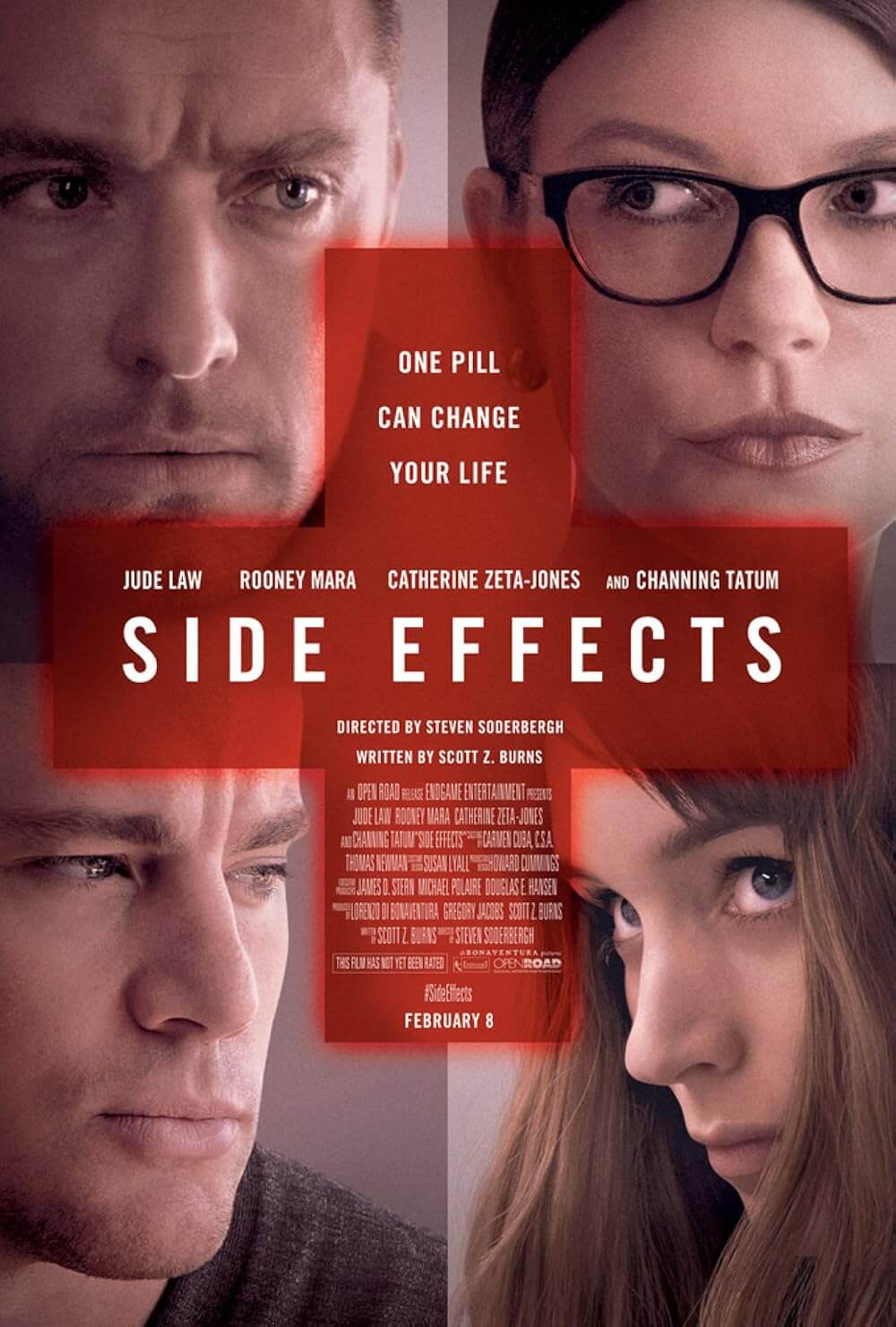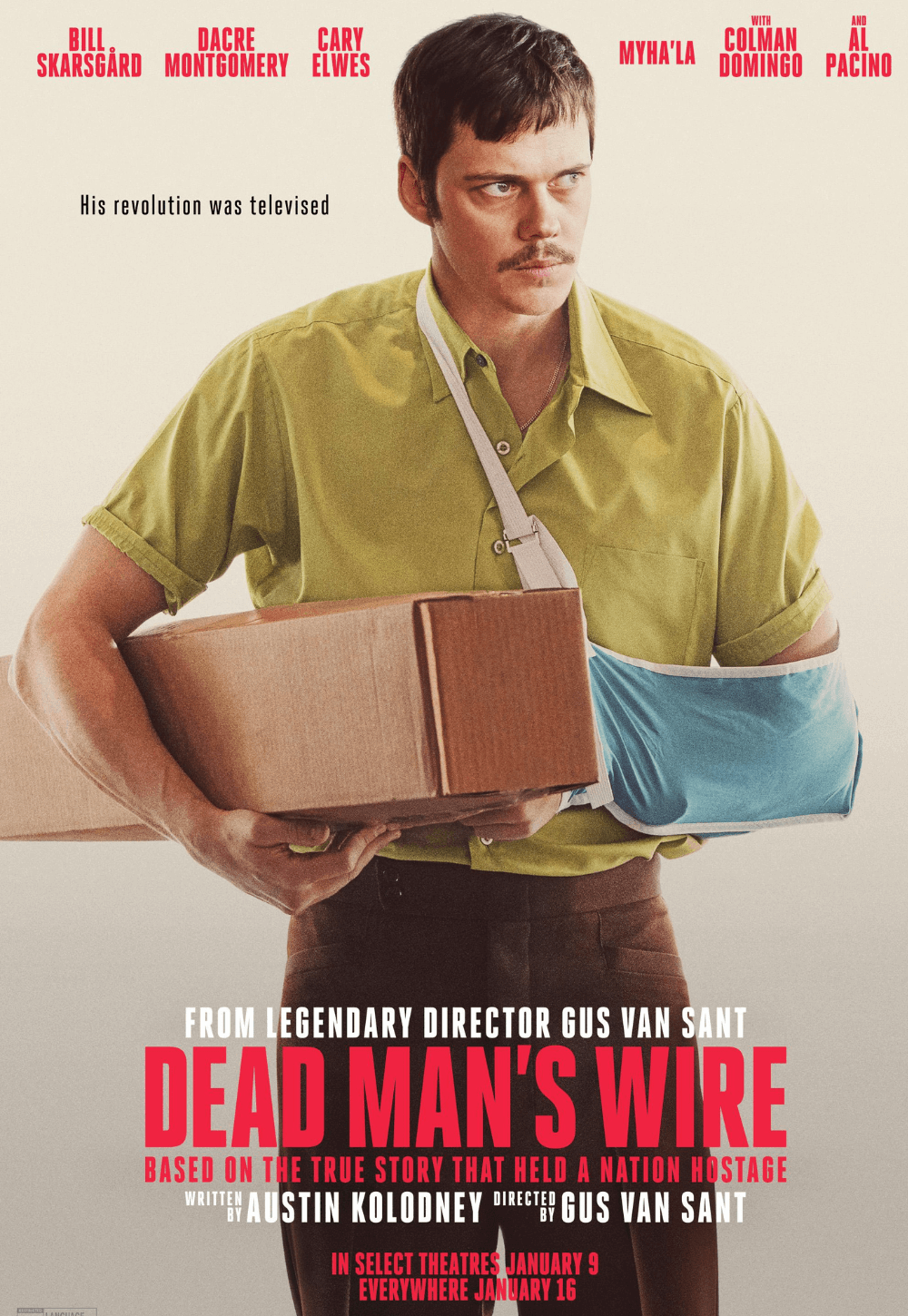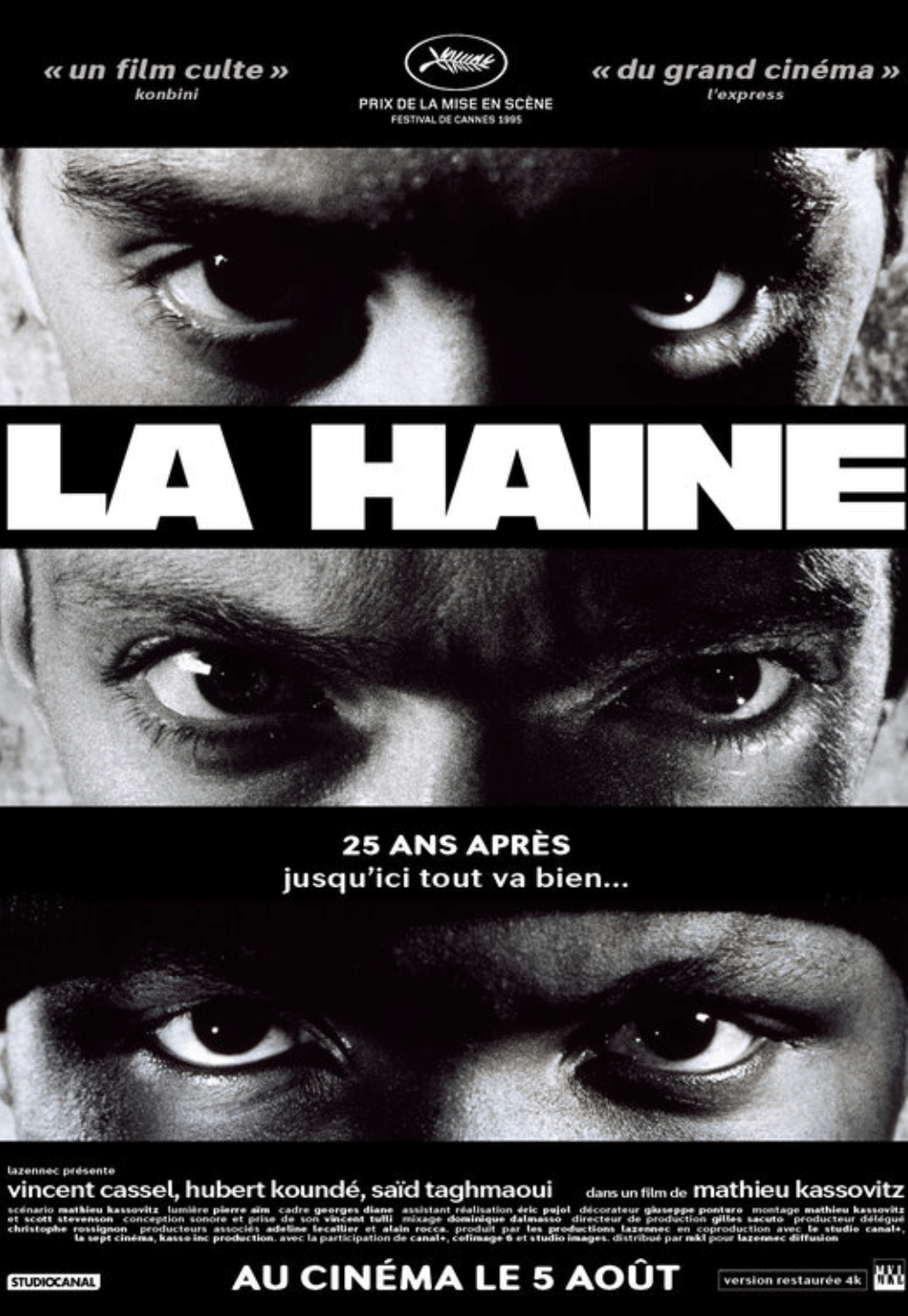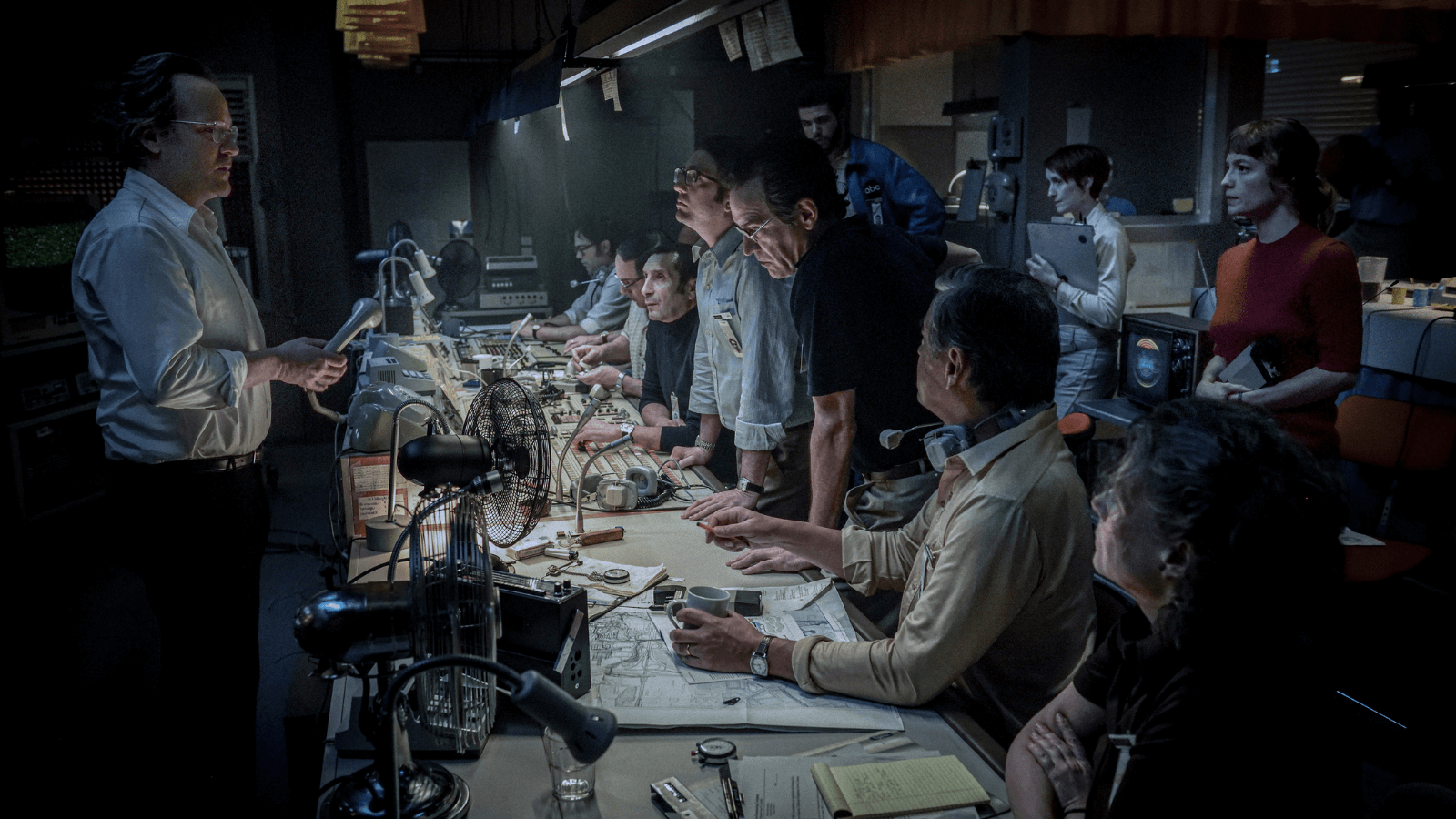
September 5
By Brian Eggert |
September 5 raises so many questions that it’s almost overwhelming. That it doesn’t try to answer them is rare. The film dramatizes the terrorist attack at the 1972 Munich Olympics through the eyes of ABC Sports journalists, who broadcast live to nearly a billion people. On the surface, this is a film about journalism and what it means to report on a story. Can any reporter shed their perspective altogether to present an unfiltered account? Is journalistic objectivity a myth? What are the ethical implications of such coverage, particularly when the presence of journalists could affect the outcome? But the film also raises extratextual questions. Its loaded subject matter grapples with history, such as what the 1972 Olympics meant 27 years after World War II and how the attack echoes in current events. Like the film’s reporters, a work of art cannot depict a subject without commenting either directly or indirectly. As much as director Tim Fehlbaum and his co-writers Moritz Binder and Alex David frame their account around the journalists, their film cannot avoid becoming part of broader conversations about history, the present Israel-Hamas war, and the implications of representation.
All of this might seem like too much for a 94-minute thriller. However, September 5 serves as a springboard for these conversations. The situation is made all the more dramatic because those involved are accustomed to sports, not politics or world events. Then again, Roone Arledge (Peter Sarsgaard), the savvy executive in charge of ABC’s coverage, taps into the audience’s emotions by showcasing German losses to Jewish athletes, indirectly drawing on the Holocaust to give the victories added meaning. But the broadcasting team—including sports division head Marvin Bader (Ben Chaplin), young producer Geoff Mason (John Magaro), and local German translator Marianne Gebhardt (Leonie Benesch)—maneuvers to track the unfolding story, even though their understanding of conflict remains inexpert. They race to catch up as Palestinian militants from Black September infiltrate the Olympic Village, taking eleven Israeli athletes hostage. After killing two hostages immediately, the group negotiates an escape, but a botched rescue attempt tragically claims the lives of the remaining nine.
Rather than dramatizing the attack, September 5 spends most of its runtime inside the newsroom, where technicians and producers scramble to deliver the best coverage under the circumstances. “We’re following the story,” says Arledge, “wherever it takes us.” Chronicling this requires some mild deception to get a camera into the Olympic Village, creative wiring and camera placement, arguments over satellite time, split-second decisions, and debates about what’s appropriate to put on live television. The screen drama doesn’t delve into the personal lives of the ABC professionals, though their prejudices and biases become apparent in passing remarks. Each of them is committed to the job, whatever personal protests or concerns they might have. And yet, maybe it’s the speed at which the story and film unfold, or maybe it’s the subtle work of the actors, but each character feels like a real human being.
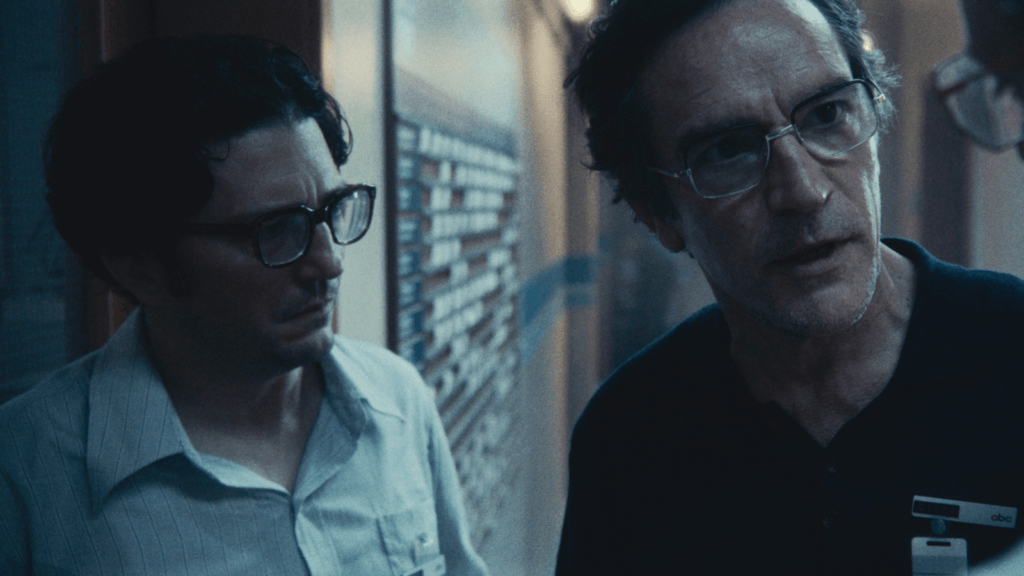
A Swiss-born director whose experience lies in unrelated material—high-concept horror (Hell, 2011) and sci-fi (The Colony, 2021) movies—Fehlbaum demonstrates incredible skill and unpreachy restraint. He and editor Hansjorg Weissbric weave the heightened drama behind the scenes with real footage from the actual broadcast, lending the picture a documentary-like authenticity. Cinematographer Markus Förderer’s camerawork also has a touch of handheld kineticism reminiscent of director Paul Greengrass (Captain Phillips, 2013), though Fehlbaum isn’t above using dramatic close-ups or evocative moments for visual poignancy. The aesthetics, coupled with all-around excellent performances by the ensemble, make the proceedings feel engrossing, even if you’re familiar with the outcome. Fortunately, Fehlbaum doesn’t set out to comment on the conflict between Israel and Palestine, then or now. Then again, he doesn’t attempt to explain the Palestinians’ motivations or the origins of the Israeli-Palestine conflict either. He simply focuses on the events at hand.
That’s bound to upset some people who remain unbendingly committed to one side or the other, or who will wonder why this film was released now. They’re apt to project their biases onto the film, forgetting that the project was being researched and developed long before the current Israel-Hamas war started in 2023. But while journalists aren’t supposed to take sides, the stories they choose to tell and how they choose to tell them represent a point of view. Today, much of the media takes a more active ideological side, leading to an irrevocable mistrust between the news and the public over biases and misinformation. When critics say journalism is dead, it’s because the financial interests of corporate owners have led to the sacrifice of in-depth reporting in favor of click-bait headlines, infotainment, and commodifying news to ideological demographics. Objectivity, once an aspiration, is no longer even a faint ambition for some. We have embraced subjectivity and lost something essential that has brought us to our post-truth present.
September 5 remains rooted in such questions of journalistic philosophy and responsibility. It will undoubtedly join the canon of movies that journalism professors show to their classes, along with All the President’s Men (1976), Shattered Glass (2003), and Spotlight (2015). But it also belongs in a conversation with Steven Spielberg’s Munich (2005)—a film that manages to offer a humanist position, resolving that a cycle of retaliation only creates more trauma and more unnecessary death. Viewers might also pair September 5 with this year’s Civil War, Alex Garland’s similarly apolitical take on the journalists’ role. On a level of pure filmmaking, Fehlbaum’s film is terrifically executed and acted with care. There’s not one unnecessary scene or frame in the story. But its lasting effect will be in the passionate debates to follow about the role of journalism, postwar dynamics, the implications of representation, and current events.
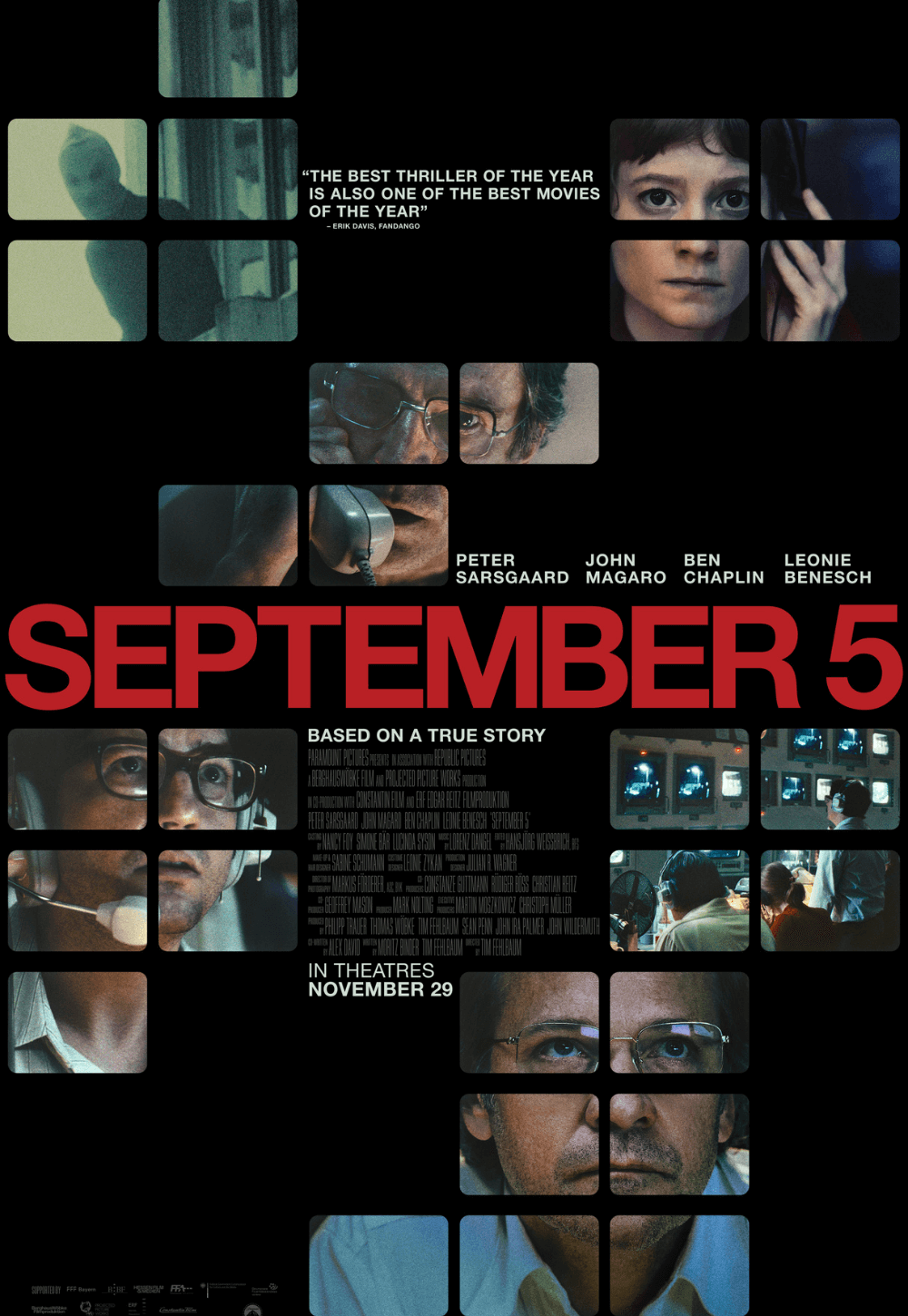
Thank You for Supporting Independent Film Criticism
If the work on DFR has added something meaningful to your love of movies, please consider supporting it.
Here are a few ways to show your support: make a one-time donation, join DFR’s Patreon for access to exclusive writing, or show your support in other ways.
Your contribution helps keep this site running independently. However you choose to support the site, please know that it’s appreciated.
Thank you for reading, and for making this work possible.
Brian Eggert | Critic, Founder
Deep Focus Review


